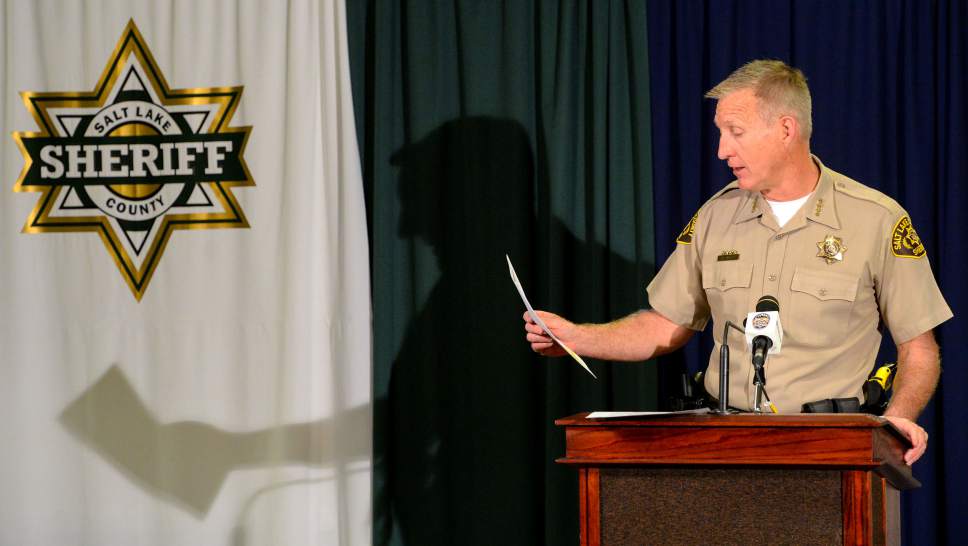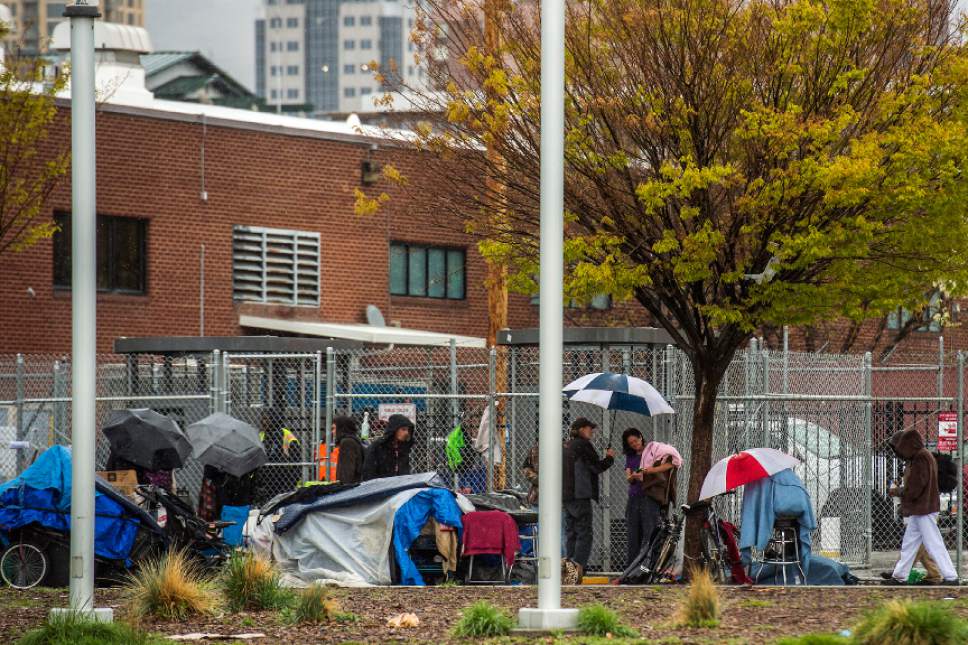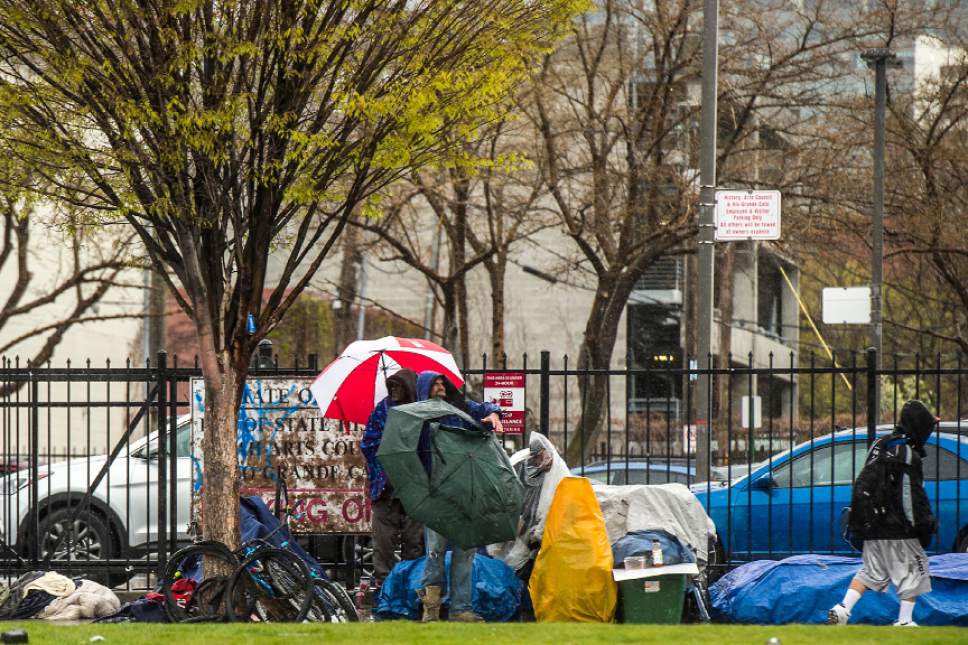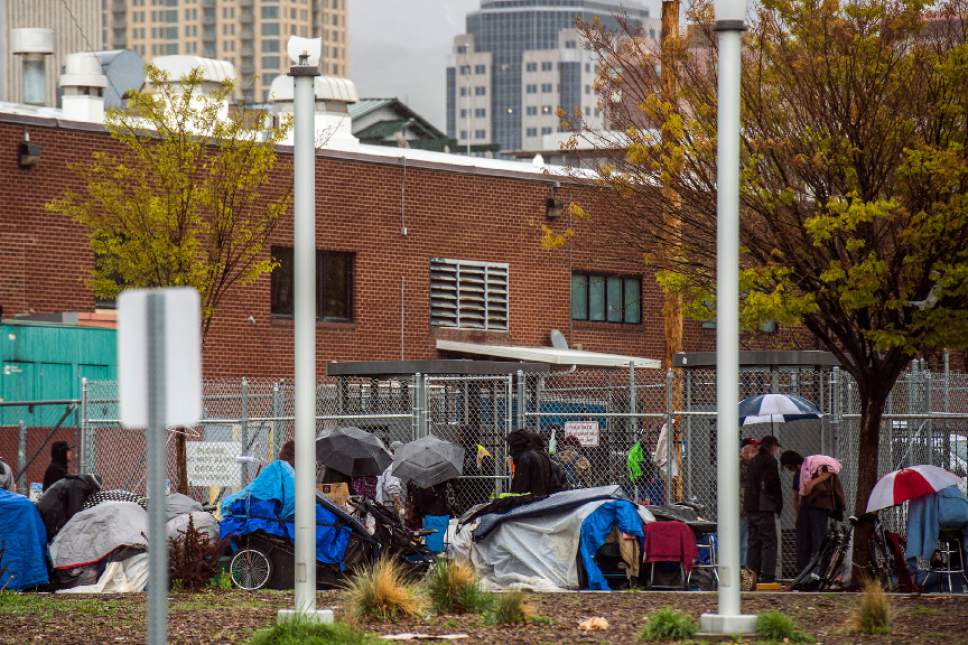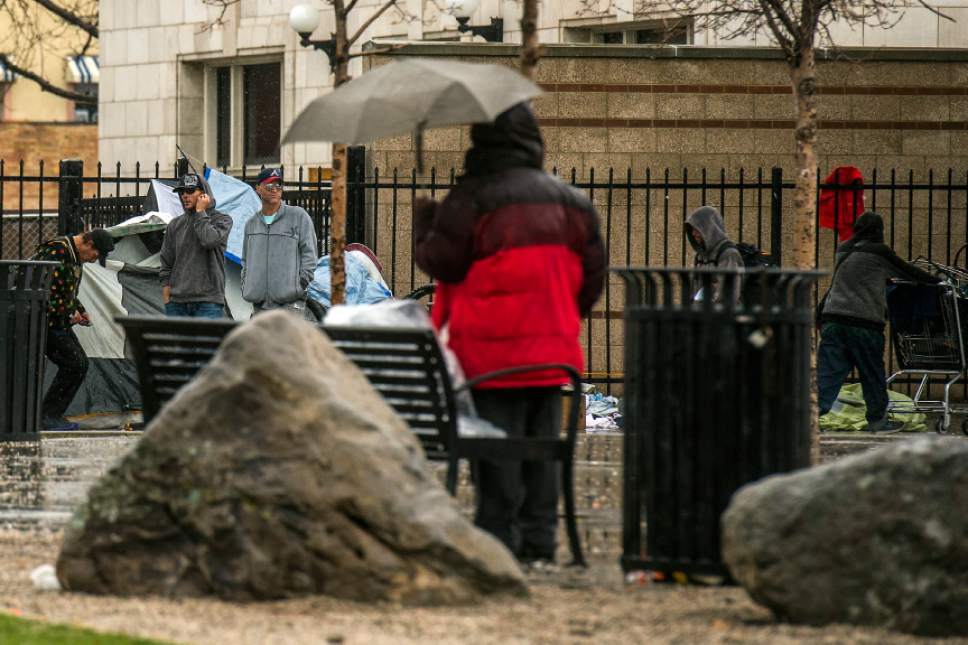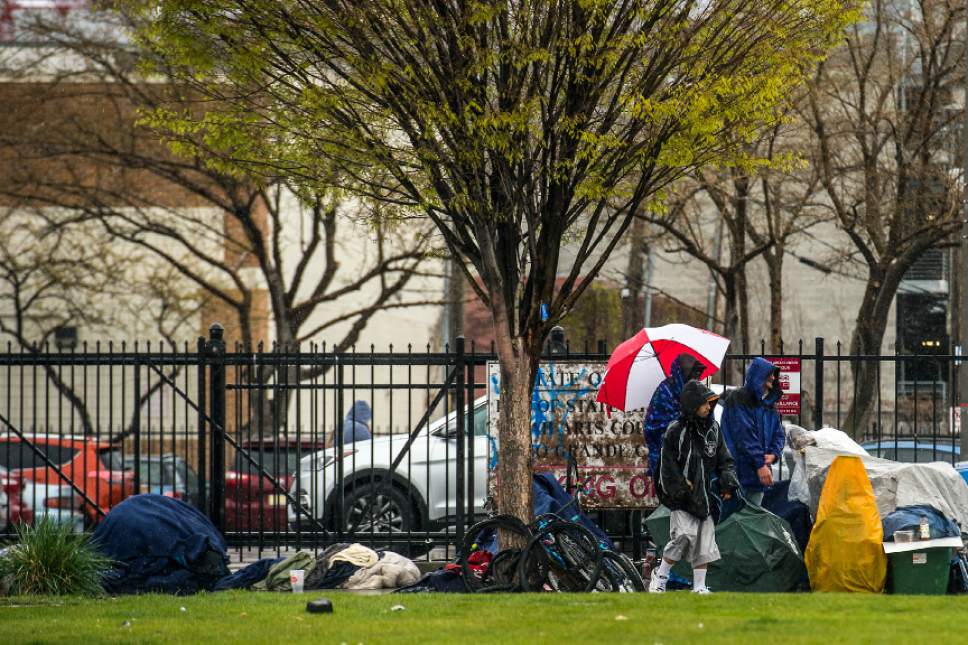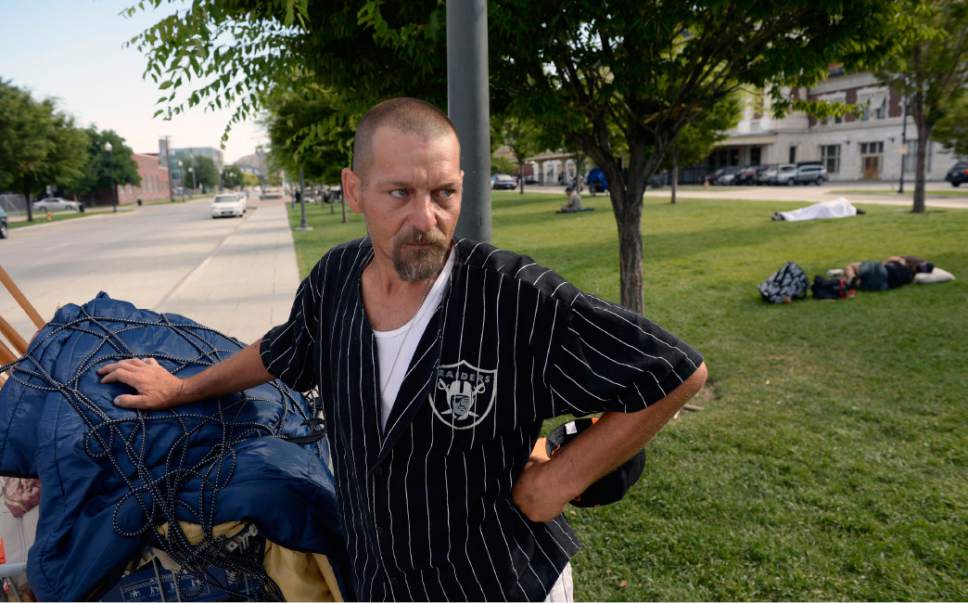This is an archived article that was published on sltrib.com in 2017, and information in the article may be outdated. It is provided only for personal research purposes and may not be reprinted.
The Rio Grande neighborhood surrounding the Road Home shelter is in crisis and Salt Lake County Sheriff Jim Winder says it is time for an emergency response.
At a Thursday morning news conference, Winder forcefully explained his 21-point plan to deal with the chaos, drug dealing and lawlessness in the Pioneer Park area. It's a blueprint, he said, for how to "take back" the neighborhood from miscreants.
"I'm tired of people saying there is no way to get a handle on this," Winder said. "Enough committees ... It's spring 2017 — let's do something."
Critics have labeled his proposals a distraction and worse.
The plan includes a tenet to reduce the homeless shelter's population from about 1,100 to 200 by June 1, and to establish a homeless campground at 100 South and 600 West, where drugs, alcohol and pets would be forbidden.
It also outlines more law enforcement from a variety of agencies.
The proposals should be a wake-up call to community leaders, the sheriff said.
"People have had it," Winder said. "These solutions need to start now."
As of Thursday, the plan did not have widespread support. Salt Lake City Mayor Jackie Biskupski and Salt Lake County Mayor Ben McAdams said they've heard the sheriff discuss the issues but haven't seen a written plan.
Others have dismissed it out of hand.
Homeless advocate Glenn Bailey, executive director of the Crossroads Urban Center, called the sheriff's plan "crazy."
"I'm not sure I have a word for it," he said. "It's ridiculous. It looks like a way to crack heads in the Rio Grande area."
Further, Bailey said, the plan is not workable. Many people who camp out now do so because they use drugs or alcohol that are not allowed in the shelter.
"It's not a good plan," he said. "But it will contribute to the chaos."
The Pioneer Park Coalition, a group made up of developers, business interests, residents and others, gave the plan its unqualified endorsement. That was a red flag for Bailey.
"[They] want to make the Rio Grande neighborhood suitable for development. That's their bottom line," Bailey said. "There are problems, but they shouldn't be swept away. They should be dealt with."
Although the initiative seemed to come out of the blue Tuesday when the Pioneer Park Coalition released it with praise, it has actually been in the works for two years, Winder said.
Beginning with the administration of Mayor Deedee Corradini (1992-2000), Winder maintained that Salt Lake City has allowed the area to continue to degenerate as the homeless population has grown, providing a convenient environment for drug dealers.
"They have allowed it to manage itself," he said of city leaders. Their efforts "have been predominantly reactive. ... Salt Lake City hasn't addressed the underlying issues."
But City Councilman Charlie Luke said Winder's plan is an attempt to divert attention away from his failure to provide adequate jail space for Salt Lake City and the surrounding area.
"[I] find it difficult to accept criticism about Salt Lake City's approach," Luke said, "when it is coming from someone whose deliberate inaction is exacerbating the problem."
Winder has said society cannot arrest itself out of drug addiction. It's a matter of resources, he said, that the Salt Lake County Jail will not book anyone who is charged with less than a felony. That means that suspects arrested in the Rio Grande area are often let go.
Tuesday, however, Winder said state and county funding will soon allow for more jail beds.
The sheriff also wants stricter controls at the shelter. Under his plan no one could enter The Road Home without submitting to a search. No one could be admitted who has an outstanding felony warrant. And nobody would be allowed in who is on the sex-offender registry.
"We are trying to make a space for people who comply," Winder said, "and make it difficult for those who don't comply."
In conjunction with that, Winder said, Salt Lake City must create a more clearly defined camping ordinance, disallowing anyone from erecting temporary structures for sleeping.
"Either they can camp on the street," he said, "or they can't."
The sheriff's blueprint also includes efforts to curb panhandling. He explained that helpful people who give money to panhandlers may not realize it goes to buy drugs.
The plan also calls for closure of the state liquor store at the corner of 400 South and 200 West. The outlet acts as a gathering place for would-be lawbreakers, Winder said.
Further, unlicensed bicycles would be confiscated, because, the sheriff said, they are often used in drug trafficking.
License plate readers would be installed to keep track of autos frequenting the area. The sheriff said the drivers of those vehicles are most likely buying drugs.
Winder conceded his proposals may cause displacement of homeless people to other areas.
"People may say, you're just displacing them," he said. "Well, you have to start somewhere."
Another business group, the Downtown Alliance did not endorse the plan. Jason Mathis, executive director, said although he applauded the sheriff's efforts, neither reducing the shelter's population to 200 by June 1 nor creating a campsite downtown was palatable.


